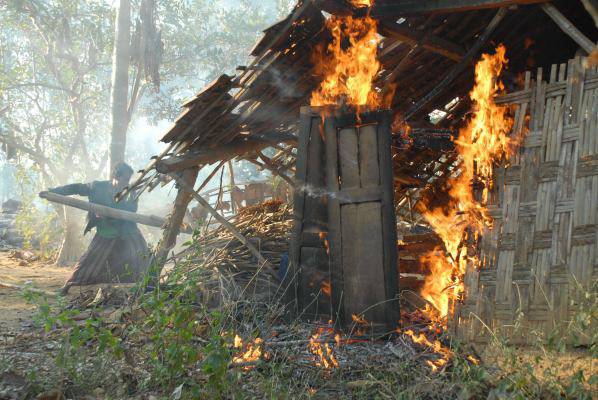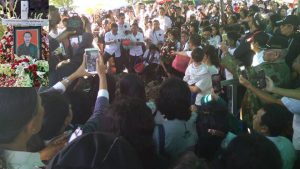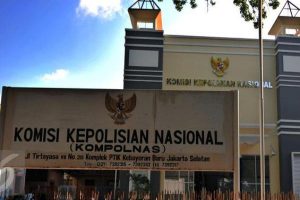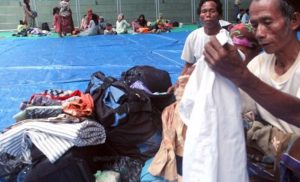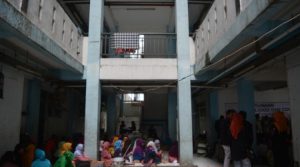Children miss years of school following evictions,
Local administrations fail to mediate between Shia group,
other residents Government reluctant to step in.
Five years on, Shia Muslims who were banished from their hometowns in Sampang regency, Madura Island, have yet to find a place to call home. As the authorities have continued to move them from one place to another, children from the community have been unable to attend school.
Juwairiyah, Ririn and Misriyah could only accept their fate of being unable to continue their studies at junior high school. They instead attend a makeshift school at the Jemundo apartment block in Sidoarjo regency, East Java, where they are currently staying.
They usually spend two hours a day at the school.
The parents of the 12-year-olds are from the Shia Muslim community of Sampang, also in East Java, who were evicted from their villages in August 2012 following an attack by an anti-Shia group that forced them to flee. They live in hardship with no fixed jobs. The men in the group once earned money as coconut peelers, but the jobs have dried up as people no longer send coconuts to be processed.
“At the same time, the cash aid that we used to receive every month was stopped two months ago,” community coordinator Tajul Muluk told The Jakarta Post in Sidoarjo on Sunday.
The evictees previously received Rp 709,000 per month.
Apart from the three girls, 15 children have not graduated from elementary school while six others have been unable to continue their studies at senior high school.
A total of 335 people in the community’s 81 families stay at the apartment block.
Tajul said all of them wanted the government to return them to their hometowns of Nangkernang in Karang Gayam subdistrict, Omben district, and Gading Laok in Blu’uran subdistrict, Karang Penang district. Tajul said both the East Java and Sampang administrations had failed to find solutions to the conflict involving Shia and antiShia groups on Madura. That is why they have demanded that the central government step in and mediate so they can return home.
The Commission for Missing Persons and Victims of Violence’s (Kontras) Surabaya branch coordinator, Djuir Muhammad (red-Fatkhul Khoir), expressed the same sentiment. He said when Religious Affairs Minister Lukman Hakim Saefuddin visited the evictees in August 2016, he expressed optimism that the group could return home.
“In fact, up to the present, three years after Jokowi came to power, no serious measures have been taken to put an end to the problems we are facing,” Djuir said.
Lukman did not provide a clear answer regarding when the government would return the community home, arguing that a solution to the problem had been offered to the conflicting parties.
“We continue conducting [settlement efforts]. It is now being handled by the provincial and regency administrations and it also very much depends on how they settle the problem,” Lukman said in Surabaya on Saturday.
He called on all parties to act wisely regarding diversity in the country and not to blame each other or consider themselves to hold the only correct view. Before taking shelter at the Jemundo apartments belonging to the East Java administration, the evicted Shia community previously lived at the Sampang sports hall.
In June 2013, however, authorities evicted them from the building and they were moved to the apartments.
(Wahyoe Boediwardhana)

